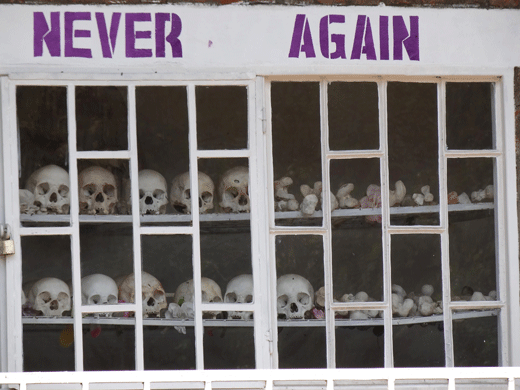Seminar: 25 years after the Rwandan Genocide
 In less than a hundred days, more than 800,000 Rwandese people were murdered in a deliberate and well-organized act of genocide, orchestrated by then-members of the Rwandan government.
In less than a hundred days, more than 800,000 Rwandese people were murdered in a deliberate and well-organized act of genocide, orchestrated by then-members of the Rwandan government.
The genocidal regime targeted the Tutsi population and moderate Hutu who opposed the killings. Many Hutu and Twa also lost their lives as the genocide unfolded in the context of a civil war between the Hutu-dominated government and a Tutsi-dominated rebel movement, the Rwandan Patriotic Front (RPF).
The killings started on the 6th of April, following a rocket attack that caused a plane carrying the presidents of Rwanda and Burundi to crash. Despite the presence of a considerable UN peacekeeping force at the outbreak of the violence, the international community failed to intervene, pulling most of their forces out and ignoring any pleas for help. This failure to act allowed the killings to continue until the 4th of July, when Rwandan Patriotic Front forces, then led by the current president Paul Kagame, were able to take control of the country, ousting those responsible for the genocide from the country.
How did the genocide against the Tutsi in Rwanda come to be and why did it happen? Could it have been prevented if the international community had done more? If so, how does humanity as a whole prevent such events from happening in the future? This seminar will address these and other questions.
Please note: this seminar will take place at the The Hague Campus, Location Wijnhaven.
Contact person: Daan Sanderse: d.sanderse.2@umail.leidenuniv.nl
Speakers
Bert Ingelaere
Filip Reyntjens
Both speakers are affiliated to the Institute of Development Policy, University of Antwerp. Read their biographies.
Discussant
Margot Leegwater

